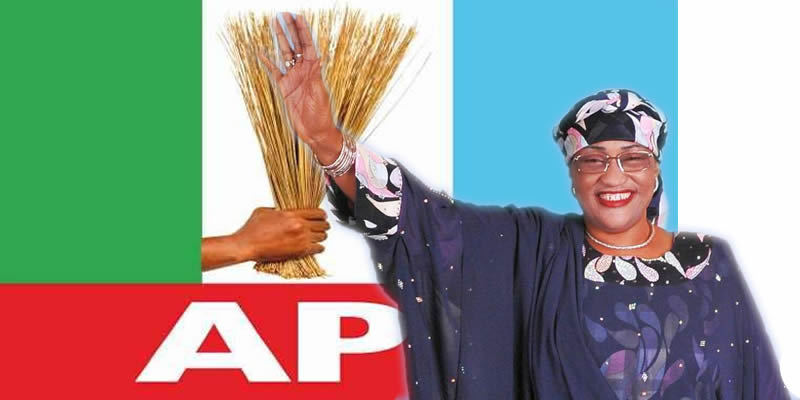The Minister of Women Affairs and Social Development, Senator, said contrary to speculations, she had not defected from the All Progressives Congress, disclosing that the party would be the platform under which she would contest again for the Taraba State governorship election in 2019.
She explained that her “political enemies” had mistaken her visit to the Peoples Democratic Party secretariat in July 2017 as a “clandestine ploy” to return to her former political party.
The minister had also raised eyebrows in September 2017 when she declared her readiness to support ex-Vice-President Atiku Abubakar’s bid for the presidency against President Muhammadu Buhari’s re-election bid.
Three months later, Atiku had defected from the APC to the PDP, where he has expressed interest in contesting in next year’s presidential election.
However, at a press briefing at the 18th Regular National Council Meeting in Lagos on Thursday, Alhassan debunked rumours of her defection to the PDP, saying she only went to the party’s secretariat to advocate women’s inclusion in politics.
READ: Ex-minister destroys 10 boreholes he built because he lost an election
She said, “I had gone to all the political parties (at the time) to advocate for inclusion of women in all political matters because political inclusion starts from political parties. That was why I decided to go on an advocacy visit.
“I can remember at that time when I went to the PDP that my political opponents took it all over that I had defected to the PDP. I am the Minister of Women Affairs, so every Nigerian woman, whether in the APC, PDP, All Progressives Grand Alliance, or other, belongs in my constituency.
“I believe in myself, that is why when God didn’t give me (the governorship seat) last time, even though I won, I prayed to God to keep me alive to contest again in 2019. Next month is the primary and by the grace of God, I have written my notification letter to my boss, Mr President, and he wished me well and gave me the assurance that he would support the Independent National Electoral Commission and the security agencies to conduct free, fair and transparent elections.”
